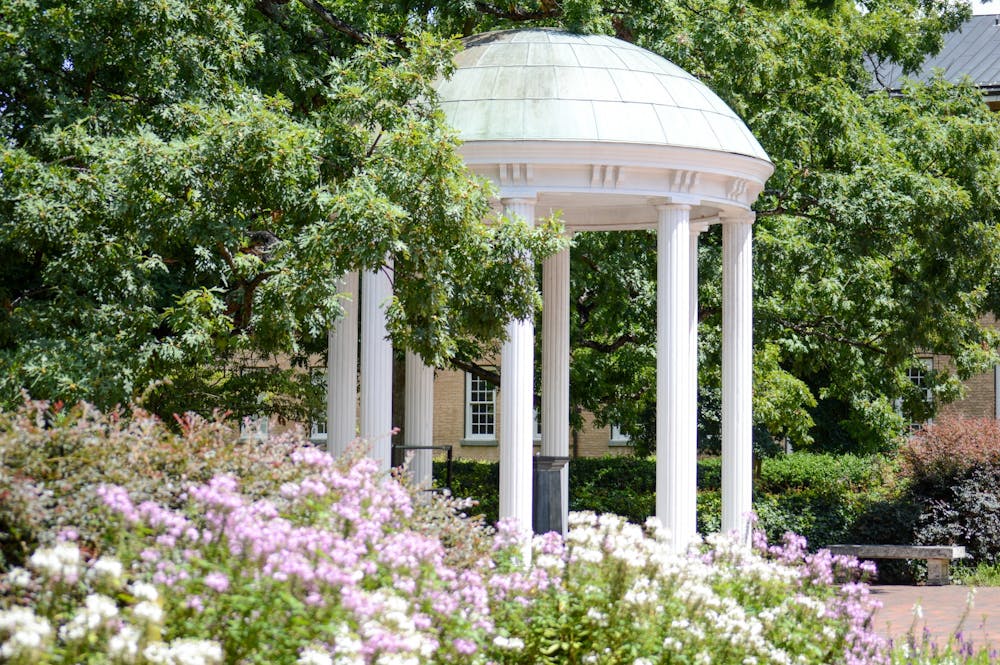Several UNC professional school programs will undergo significant tuition increases for the 2023-2024 academic year, according to the proposals presented to the UNC Board of Governors Committee on Budget and Finance Wednesday morning.
The committee reviewed proposals for capital improvement projects and next year's tuition and fees.
What’s new?
- UNC System Senior Vice President for Finance and Chief Financial Officer Jennifer Haygood presented the proposed tuition and fee increases across System institutions.
- UNC has proposed significant tuition increases for professional school programs for the upcoming academic year.
- The largest jump is a $10,000 increase for both resident and nonresident graduate students in a master's computer science program and master's statistics, analytics and data science program. These increases will affect incoming students only.
- “The majority of these school-based adjustments are in areas where we would expect that market demand for programs would be high,” Haygood said.
- The UNC Board of Trustees approved the proposed 5-percent increase on nonresident undergraduate tuition — an increase of $1,780 — in November.
- Resident undergraduate tuition and graduate tuition for both resident and nonresident students are set to remain the same.
- Resident undergraduate tuition has remained the same or decreased across all System schools since 2017.
- “At some point we're not going to be able to do this,” Committee Chairperson James Holmes said. “But we're taking the stance that we're going to do it yet again.”
- According to the proposals, there will be no fee increases for UNC-Chapel Hill next academic year.
- The full BOG will have a final vote on the increases at its meeting in February.
- UNC has proposed significant tuition increases for professional school programs for the upcoming academic year.
- The committee heard a report from BOG Vice Chair Wendy Floyd Murphy on a potential move to a self-funded student health insurance plan.
- With a self-funded insurance plan, schools would use their own funds to cover the health expenses on the university plan, rather than paying premiums to an outside insurance company.
- “A self-funded approach could save millions thanks to reduced administrative cost and no premium tax,” Murphy said. “A self-funded plan would also enable greater flexibility and control in plan design, premium rates and indirectly contracting with mental health care providers.”
- The BOG passed a resolution calling on the System to develop an implementation plan for this type of insurance. However, the resolution does not call for the adoption of this plan, Murphy said.
- Dan Layzell, the vice chancellor of finance and operations at Appalachian State University, requested authorization from the Board to develop more affordable faculty and staff housing in its Innovation District, as well as an energy system to support the buildings in the district.
- “Most of the product that is on the market (in Boone) is student housing,” Layzell said. “So what we are endeavoring to do here and what we’re moving towards in the plan is to provide housing at below market rent.”
- The committee approved both authorizations unanimously, and they will go through a final vote during the full BOG’s consent agenda Thursday.
- The BOG also unanimously approved several other authorizations and projects, including:
- Extending UNC-Charlotte’s designation as a millennial campus to other sections of property, which would allow the campus to work with private-sector entities for university development projects.
- A list of new capital improvement projects and increased spending authorizations for ongoing projects.
- UNC’s authorizations included replacements of HVAC systems, generators and the Morrison Residence Hall elevators, as well as increased funding for equipment replacement in the Neuroscience Research Building Lab.
- The demolition of Galloway Hall, the first residence hall at UNC-Wilmington.
- The full BOG meets the morning of Thursday, Jan. 19.



